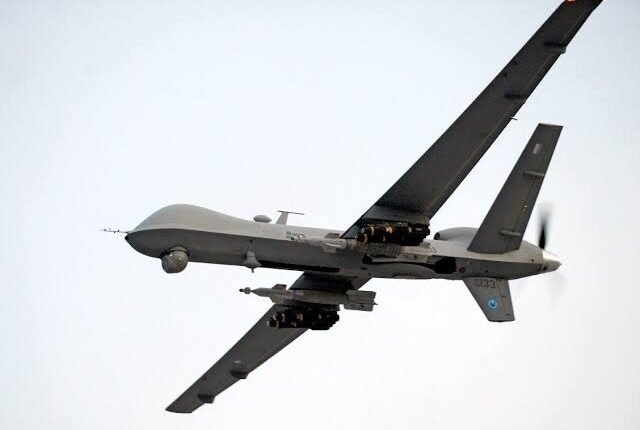Drones: A Psychological Warfare Tool in the Hands of Armed Groups in Africa

Copenhagen – Sudanhorizon
The Institute for Security Studies (ISS) reported that at least nine armed groups in Africa have now acquired military-grade drones, including in Burkina Faso, the Democratic Republic of Congo, Kenya, Libya, Mali, Mozambique, Nigeria, Somalia, and Sudan. This highlights the expanding use of drones for multifaceted operations across the continent.
Africa has witnessed rapid growth in drone manufacturing, deployment, and local usage, revealing a complex web of actors and intermediaries. In combat, drones not only provide intelligence and lethal strike capabilities but also enable irregular armed groups to disseminate propaganda widely and swiftly.
Unmanned Aerial Systems (UAS) and drones exemplify the “democratization of technology,” with both African militaries and non-state armed groups deploying them for lethal effects. From hobbyist models to locally manufactured drones, these tools are narrowing the gap—whether real or perceived—between the capabilities of state and non-state actors.
Propaganda and Psychological Warfare
The ISS noted last Tuesday that violent non-state actors exploit drones for propaganda—showcasing new aerial capabilities, operational successes, or even cinematic footage of attacks. Beyond physical damage, drones hold immense propaganda value, though this aspect receives far less media and academic attention than their kinetic roles.
Unlike governments with well-equipped propaganda machinery, armed groups leverage drones for psychological impact in two key ways:
The Power of Perception: Merely claiming drone use sends a potent psychological message. This is particularly evident in the “drone arms race,” where intermediaries supply armed groups with hobbyist and military-grade drones, allowing them to project power beyond their actual capacity. According to Maria Louise Clausen of the Danish Institute for International Studies, “The prestige associated with drone ownership can itself become a primary objective.”
Information Warfare: Drones serve as intelligence-gathering tools, capturing video, images, and audio for online dissemination. Examples abound in Africa and the Middle East. Yemen’s Houthi rebels (Ansar Allah) have waged a drone war in the region, ranking among 57 global armed groups using this technology for kinetic and non-kinetic purposes. Their tactical and symbolic successes may inspire allies, such as Somalia’s Al-Shabaab, as armed groups forge closer alliances.
Africa’s Delayed but Strategic Adoption
Sources from Sudanhorizon indicate that African armed groups adopted hobbyist and commercial drones later than their Middle Eastern counterparts. Al-Shabaab, for instance, showcased propaganda potential early on, displaying a downed military drone on their media channels in 2016. Footage of the deadly January 2020 Manda Bay attack in Kenya further demonstrated the group’s expertise in psychological warfare, as noted by the Counter-Terrorism Centre.
In the Democratic Republic of Congo, a 2024 UN Institute for Disarmament Research report found that the Allied Democratic Forces used drones to film their camps “for propaganda purposes.”
In the Sahel, groups like Boko Haram and ISIS-West Africa are experimenting with drone-filmed propaganda videos. These serve not only as recruitment tools but also to flaunt technological prowess, potentially aiding fundraising by portraying the groups as advanced.
Regulatory Challenges
While the UN Security Council has passed resolutions addressing drone misuse, future measures should focus on government-led monitoring and risk awareness, balancing the technology’s developmental benefits. In Africa, where arms smuggling is rampant, the illicit trafficking of drone components warrants further scrutiny.
Shortlink: https://sudanhorizon.com/?p=5914

